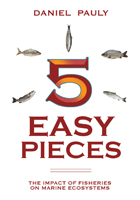
Daniel Pauly, a well-known fisheries expert who was a co-author of all five articles, presents each original article here and surrounds it with a rich array of contemporary comments, many of which led Pauly and his colleagues to further study. In addition, Pauly documents how popular media reported on the articles and their findings. By doing so, he demonstrates how science evolves. In one chapter, for example, the popular media pick up a contribution and use Pauly’s conclusions to contextualize current political disputes; in another, what might be seen as nitpicking by fellow scientists leads Pauly and his colleagues to strengthen their case that commercial fishing is endangering the global marine ecosystem. This structure also allows readers to see how scientists’ interactions with the popular media can shape the reception of their own, sometimes controversial, scientific studies.
In an epilog, Pauly reflects on the ways that scientific consensus emerges from discussions both within and outside the scientific community.
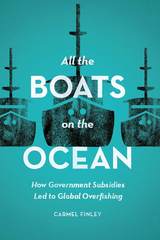
In this transnational, interdisciplinary history, Carmel Finley answers these questions and more as she explores how government subsidies propelled the expansion of fishing from a coastal, in-shore activity into a global industry. While nation states struggling for ocean supremacy have long used fishing as an imperial strategy, the Cold War brought a new emphasis: fishing became a means for nations to make distinct territorial claims. A network of trade policies and tariffs allowed cod from Iceland and tuna canned in Japan into the American market, destabilizing fisheries in New England and Southern California. With the subsequent establishment of tuna canneries in American Samoa and Puerto Rico, Japanese and American tuna boats moved from the Pacific into the Atlantic and Indian Oceans after bluefin. At the same time, government subsidies in nations such as Spain and the Soviet Union fueled fishery expansion on an industrial scale, with the Soviet fleet utterly depleting the stock of rosefish (or Pacific ocean perch) and other groundfish from British Columbia to California. This massive global explosion in fishing power led nations to expand their territorial limits in the 1970s, forever changing the seas.
Looking across politics, economics, and biology, All the Boats on the Ocean casts a wide net to reveal how the subsidy-driven expansion of fisheries in the Pacific during the Cold War led to the growth of fisheries science and the creation of international fisheries management. Nevertheless, the seas are far from calm: in a world where this technologically advanced industry has enabled nations to colonize the oceans, fish literally have no place left to hide, and the future of the seas and their fish stocks is uncertain.
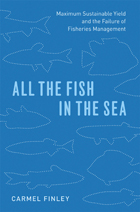
Carmel Finley reveals that the fallibility of MSY lies at its very inception—as a tool of government rather than science. The foundational doctrine of MSY emerged at a time when the US government was using science to promote and transfer Western knowledge and technology, and to ensure that American ships and planes would have free passage through the world’s seas and skies. Finley charts the history of US fisheries science using MSY as her focus, and in particular its application to halibut, tuna, and salmon fisheries. Fish populations the world over are threatened, and All the Fish in the Sea helps to sound warnings of the effect of any management policies divested from science itself.
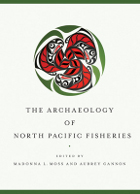
For thousands of years, fisheries were crucial to the sustenance of the First Peoples of the Pacific Coast. Yet human impact has left us with a woefully incomplete understanding of their histories prior to the industrial era. Covering Alaska, British Columbia, and Puget Sound, The Archaeology of North Pacific Fisheries illustrates how the archaeological record reveals new information about ancient ways of life and the histories of key species. Individual chapters cover salmon, as well as a number of lesser-known species abundant in archaeological sites, including pacific cod, herring, rockfish, eulachon, and hake. In turn, this ecological history informs suggestions for sustainable fishing in today’s rapidly changing environment.
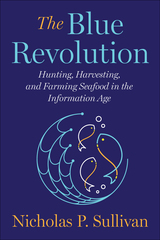
Nicholas P. Sullivan presents this new way of thinking about fish, food, and oceans by profiling the people and policies transforming an aging industry into one that is “post-industrial”—fueled by “sea-foodies” and locavores interested in sustainable, traceable, quality seafood. Catch quotas can work when local fishers feel they have a stake in the outcome; shellfish farming requires zero inputs and restores nearshore ecosystems; new markets are developing for kelp products, as well as unloved and “underutilized” fish species. Sullivan shows how the practices of thirty years ago that perpetuated an overfishing crisis are rapidly changing. In the book’s final chapters, Sullivan discusses the global challenges to preserving healthy oceans, including conservation mechanisms, the impact of climate change, and unregulated and criminal fishing in international waters.
In a fast-growing world where more people are eating more fish than ever before, The Blue Revolution brings encouraging news for conservationists and seafood lovers about the transformation of an industry historically averse to change, and it presents fresh inspiration for entrepreneurs and investors eager for new opportunities in a blue-green economy.
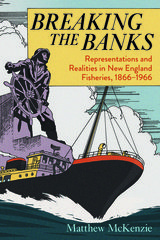
Books, films, and the media have long portrayed the Yankee fisherman's hard-scrabble existence, as he faced brutal weather on the open seas and unnecessary governmental restrictions. As McKenzie contends, this simplistic view has long betrayed commercial fisheries' sophisticated legislative campaigns in Washington, DC, as they sought federal subsidies and relief and, eventually, fewer constricting regulations. This clash between fisheries' representation and their reality still grips fishing communities today as they struggle to navigate age-old trends of fleet consolidation, stock decline, and intense competition.
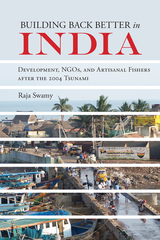
Building Back Better in India: Development, NGOs, and Artisanal Fishers after the 2004 Tsunami addresses the ways in which natural disasters impact the strategies and priorities of neoliberalizing states in the contemporary era. In the light of growing scholarly and public concern over “disaster capitalism” and the tendency of states and powerful international financial institutions to view disasters as “opportunities” to “build back better,” Raja Swamy offers an ethnographically rich account of post-disaster reconstruction, its contested aims, and the mixed outcomes of state policy, humanitarian aid, and local resistance. Using the 2004 Indian Ocean tsunami as a case study, Swamy investigates the planning and implementation of a reconstruction process that sought to radically transform the geography of a coastal district in the Indian state of Tamil Nadu.
Drawing on an ethnographic study conducted in Tamil Nadu’s Nagapattinam District, Swamy shows how and why the state-led, multilaterally financed, and NGO-mediated reconstruction prioritized the displacement of coastal fisher populations. Exploring the substantive differences shaping NGO action, specifically in response to core political questions affecting the well-being of their ostensible beneficiaries, this account also centers the political agency of disaster survivors and their allies among NGOs in contesting the meanings of recovery while navigating the process of reconstruction.
If humanitarian aid brought together NGOs and fishers as givers and recipients of aid, it also revealed in its workings competing and sometimes contradictory assumptions, goals, interests, and strategies driving the fraught historical relationship between artisanal fishers and the state. Importantly, this research foregrounds the ambiguous role of NGOs involved in the distribution of aid, as well as the agency and strategic actions of the primary recipients of aid—the fishers of Nagapattinam—as they struggled with a reconstruction process that made receipt of the humanitarian gift of housing conditional on the formal abandonment of all claims to the coast. Building Back Better in India thus bridges scholarly concerns with disasters, humanitarianism, and economic development with those focused on power, agency, and resistance.
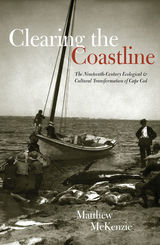
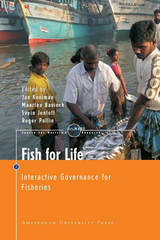
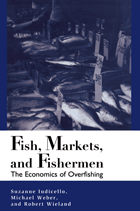
A significant number of the world's ocean fisheries are depleted, and some have collapsed, from overfishing. Although many of the same fishermen who are causing these declines stand to suffer the most from them, they continue to overfish. Why is this happening? What can be done to solve the problem.
The authors of Fish, Markets, and Fishermen argue that the reasons are primarily economic, and that overfishing is an inevitable consequence of the current sets of incentives facing ocean fishermen. This volume illuminates these incentives as they operate both in the aggregate and at the level of day-to-day decision-making by vessel skippers. The authors provide a primer on fish population biology and the economics of fisheries under various access regimes, and use that information in analyzing policies for managing fisheries. The book:
- provides a concise statistical overview of the world's fisheries
- documents the decline of fisheries worldwide
- gives the reader a clear understanding of the economics and population biology of fish
- examines the management issues associated with regulating fisheries
- offers case studies of fisheries under different management regimes
- examines and compares the consequences of various regimes and considers the implications for policy making
The decline of the world's ocean fisheries is of enormous worldwide significance, from both economic and environmental perspectives. This book clearly explains for the nonspecialist the complicated problem of overfishing. It represents a basic resource for fishery managers and others-fishers, policymakers, conservationists, the fish consuming public, students, and researchers-concerned with the dynamics of fisheries and their sustenance.
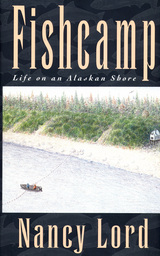
"Summers, I live at fishcamp. June through August, Mondays and Fridays, my partner and I catch and sell salmon that pass our beach on their way to spawning streams. The rest of the week, and parts of May and September, Ken and I mend nets, comb the rocky shoreline for useful poles and cottonwood bark, do a thousand camp chores and projects. We live quite happily in a tiny cabin at the top of the beach." --from Fishcamp
For the past eighteen summers, Nancy Lord and her partner Ken have made a living, and made a life, fishing for salmon off the west side of Cook Inlet on the southern coast of Alaska. In Fishcamp, Lord provides a nuanced and engrossing portrait of their days and months in camp at the inlet.
Beginning with their arrival by plane on a freshly thawed lake, she describes their joys and tribulations as spring gives way to summer and the long months of summer unfold. With poetic cadence and magical tone, Lord draws the reader into life at camp, sharing experiences that range from the mundane to the sublime: the mending of nets; the muscle-wrenching labor of the catch; the exquisite pleasure of an improvised hot-tub; the often unnoticed bounty of the inlet's flora and fauna. Interwoven throughout the descriptions of quotidian adventure are threads of the deeper history of the region -- stories and legends of the native Dena'ina; anecdotes about past and current inlet residents; discussions of the lives of their neighbors, both human and animal, who, like them, live with fish.
Fishcamp is Nancy Lord's eloquent paean to the place she calls home. In clear and richly textured prose, she captures the simple beauty of a life lived with nature, "a part" rather than "apart." As Lord explains, she shows us in Fishcamp "something about what even one place and its infinitely varied life contributes to the connections among us all and to the wholes we call 'world' and 'culture.'...Wherever our places are and whatever we do in them, perhaps we might all begin to pay more attention to the little and big things that do indeed connect in profound ways to all the rest, miles and eons and cultures apart."
Fishcamp is a remarkable combination of personal, cultural, and natural history from what will surely be recognized as one of the most talented new voices of our time.
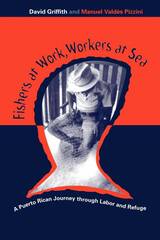
Fishers at Work, Workers at Sea describes Puerto Rican fishing families as they negotiate homeland and diaspora. It considers how wage work affects their livelihoods and identities at home and how these independent producers move in and out of global commodity markets. Drawing on some 100 life histories and years of fieldwork, David Griffith and Manuel Valdés Pizzini have developed a complex, often moving portrait of the men and women who fiercely struggle to hang onto the coastal landscapes and cultural heritage tied to the Caribbean Sea.
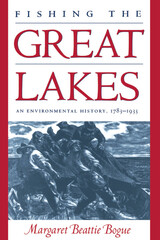
Fishing the Great Lakes is a sweeping history of the destruction of the once-abundant fisheries of the great "inland seas" that lie between the United States and Canada. Though lake trout, whitefish, freshwater herring, and sturgeon were still teeming as late as 1850, Margaret Bogue documents here how overfishing, pollution, political squabbling, poor public policies, and commercial exploitation combined to damage the fish populations even before the voracious sea lamprey invaded the lakes and decimated the lake trout population in the 1940s.
From the earliest records of fishing by native peoples, through the era of European exploration and settlement, to the growth and collapse of the commercial fishing industry, Fishing the Great Lakes traces the changing relationships between the fish resources and the people of the Great Lakes region. Bogue focuses in particular on the period from 1783, when Great Britain and the United States first politically severed the geographic unity of the Great Lakes, through 1933, when the commercial fishing industry had passed from its heyday in the late nineteenth century into very serious decline. She shows how fishermen, entrepreneurial fish dealers, the monopolistic A. Booth and Company (which distributed and marketed much of the Great Lakes catch), and policy makers at all levels of government played their parts in the debacle. So, too, did underfunded scientists and early conservationists unable to spark the interest of an indifferent public. Concern with the quality of lake habitat and the abundance of fish increasingly took a backseat to the interests of agriculture, lumbering, mining, commerce, manufacturing, and urban development in the Great Lakes region. Offering more than a regional history, Bogue also places the problems of Great Lakes fishing in the context of past and current worldwide fishery concerns.

Among the environmental challenges facing us is alleviating the damage to marine ecosystems caused by pollution and overfishing. Coming to grips with contemporary problems, this book argues, depends on understanding how people have historically generated, perceived, and responded to environmental change. This work explores interactions between society and environment in China’s most important marine fishery, the Zhoushan Archipelago off the coast of Zhejiang and Jiangsu, from its nineteenth-century expansion to the exhaustion of the most important fish species in the 1970s.
This history of Zhoushan’s fisheries illuminates long-term environmental processes and analyzes the intersections of local, regional, and transnational ecological trends and the array of private and state interests that shaped struggles for the control of these common-pool natural resources. What institutions did private and state actors use to regulate the use of the fishery? How did relationships between social organizations and the state change over time? What types of problems could these arrangements solve and which not? What does the fate of these institutions tell us about environmental change in late imperial and modern China? Answering these questions will give us a better understanding of the relationship between past ecological changes and present environmental challenges.
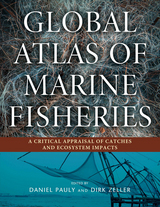
The Global Atlas of Marine Fisheries is the first and only book to provide accurate, country-by-country fishery data. This groundbreaking information has been gathered from independent sources by the world’s foremost fisheries experts, and edited by Daniel Pauly and Dirk Zeller of the Sea Around Us Project. The Atlas includes one-page reports on 273 countries and their territories, plus fourteen topical global chapters. National reports describe the state of the country's fishery, by sector; the policies, politics, and social factors affecting it; and potential solutions. The global chapters address cross-cutting issues, from the economics of fisheries to the impacts of mariculture. Extensive maps and graphics offer attractive and accessible visual representations.
While it has long been clear that the world’s oceans are in trouble, the lack of reliable data on fishery catches has obscured the scale, and nuances, of the crisis. The atlas shows that, globally, catches have declined rapidly since the 1980s, signaling an even more critical situation than previously understood. The Global Atlas of Marine Fisheries provides a comprehensive picture of our current predicament and steps that can be taken to ease it. For researchers, students, fishery managers, professionals in the fishing industry, and all others concerned with the status of the world’s fisheries, the Atlas will be an indispensable resource.

For hundreds of years, the New England cod fishery was one of the most productive in the world, with higher average annual landings than any comparable ocean area. But in the late 1980s, fish catches dropped precipitously, as the cod, flounder, and other species that had long dominated the region seemed to lose their ability to recover from the massive annual harvests. Even today, with fishing sharply restricted, populations have not recovered.
Largely overlooked in this disaster is the intriguing human and scientific puzzle that lies at its heart: an anguished, seemingly inexplicable conflict between government scientists and fishermen over how fish populations are assessed, which has led to bitter disputes and has crippled efforts to agree on catch restrictions. In The Great Gulf, author David Dobbs offers a fascinating and compelling look at both sides of the conflict.
With great immediacy, he describes the history of the fisheries science in this most studied of oceans, and takes the reader on a series of forays over the Gulf of Maine and Georges Bank on both fishing boats and research vessels. He introduces us to the challenges facing John Galbraith, Linda Despres, and Jay Burnett, passionate and dedicated scientists with the National Marine Fisheries Service who spend countless hours working to determine how many fish there really are, and to the dilemma of Dave Goethel, a whipsmart, conscientious fisherman with 20 years's experience who struggles to understand the complex world he works in while maintaining his livelihood in an age of increasing regulation.
Dobbs paints the New England fishery problem in its full human and natural complexity, vividly portraying the vitality of an uncontrollable, ultimately unknowable sea and its strange, frightening, and beautiful creatures on the one hand, and on the other, the smart, irrepressible, unpredictable people who work there with great joy and humor, refusing to surrender to the many reasons for despair or cynicism. For anyone who read Cod or The Perfect Storm, this book offers the next chapter of the story -- how today's fishers and fisheries scientists are grappling with the collapse of this fishery and trying to chart, amid uncertain waters, a course towards its restoration.

Recent decades have been marked by the decline or collapse of one fishery after another around the world, from swordfish in the North Atlantic to orange roughy in the South Pacific. While the effects of a collapse on local economies and fishing-dependent communities have generated much discussion, little attention has been paid to its impacts on the overall health of the ocean's ecosystems.
In a Perfect Ocean: The State of Fisheries and Ecosystems in the North Atlantic Ocean presents the first empirical assessment of the status of ecosystems in the North Atlantic ocean. Drawing on a wide range of studies including original research conducted for this volume, the authors analyze 14 large marine ecosystems to provide an indisputable picture of an ocean whose ecology has been dramatically altered, resulting in a phenomenon described by the authors as "fishing down the food web." The book:
- provides a snapshot of the past health of the North Atlantic and compares it to its present status
- presents a rigorous scientific assessment based on the key criteria of fisheries catches, biomass, and trophic level
- considers the factors that have led to the current situation
- describes the policy options available for halting the decline
- offers recommendations for restoring the North Atlantic
This is the first in a series of assessments by the world's leading marine scientists, entitled "The State of the World's Oceans." In a Perfect Ocean: The State of Fisheries and Ecosystems in the North Atlantic Ocean is a landmark study, the first of its kind to make a comprehensive, ecosystem-based assessment of the North Atlantic Ocean, and will be essential reading for policymakers at the state, national, and international level concerned with fisheries management, as well for scientists, researchers, and activists concerned with marine issues or fishing and the fisheries industry.
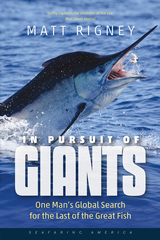
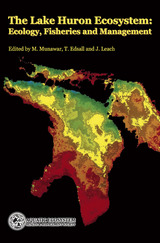
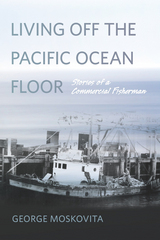
In a career that spanned over 60 years, George Moskovita met with many maritime adventures, recounted for the reader in a clear, direct, and unsentimental style. He saw the fishery he had helped build devastated by foreign factory processing ships. He bought, repaired, traded, and sank more boats than most fishermen would work on in a lifetime. Along the way, he managed to raise four daughters with his wife, June. The name of one of his last boats, the Four Daughters, reflects the central importance of family life to a man who was often at sea. Moskovita’s memoir provides a unique glimpse of Pacific maritime life in the 20th century, small-town coastal life after World War II, and the early days of fishery development in Oregon.
With an introduction and textual notes by Carmel Finley, an historian of science, and Mary Hunsicker, an aquatic and fisheries scientist, this book will be invaluable to fishery students and professionals interested in the biology, ecology, and history of oceans and commercial fishing. It will also have broad appeal to readers of Oregon history and maritime adventure, and anyone else who has ever stood at the western edge of the continent and wondered what life was like at sea.
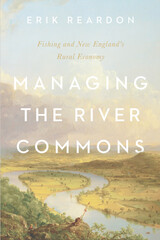
Historian Erik Reardon argues that to protect these fish, New England's farmer-fishermen pushed for conservation measures to limit commercial fishing and industrial uses of the river. Beginning in the colonial period and continuing to the mid-nineteenth century, they advocated for fishing regulations to promote sustainable returns, compelled local millers to open their dams during seasonal fish runs, and defeated corporate proposals to erect large-scale dams. As environmentalists work to restore rivers in New England and beyond in the present day, Managing the River Commons offers important lessons about historical conservation efforts that can help guide current campaigns to remove dams and allow anadromous fish to reclaim these waters.
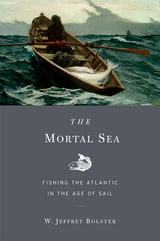
Since the Viking ascendancy in the Middle Ages, the Atlantic has shaped the lives of people who depend upon it for survival. And just as surely, people have shaped the Atlantic. In his innovative account of this interdependency, W. Jeffrey Bolster, a historian and professional seafarer, takes us through a millennium-long environmental history of our impact on one of the largest ecosystems in the world.
While overfishing is often thought of as a contemporary problem, Bolster reveals that humans were transforming the sea long before factory trawlers turned fishing from a handliner's art into an industrial enterprise. The western Atlantic's legendary fishing banks, stretching from Cape Cod to Newfoundland, have attracted fishermen for more than five hundred years. Bolster follows the effects of this siren's song from its medieval European origins to the advent of industrialized fishing in American waters at the beginning of the twentieth century.
Blending marine biology, ecological insight, and a remarkable cast of characters, from notable explorers to scientists to an army of unknown fishermen, Bolster tells a story that is both ecological and human: the prelude to an environmental disaster. Over generations, harvesters created a quiet catastrophe as the sea could no longer renew itself. Bolster writes in the hope that the intimate relationship humans have long had with the ocean, and the species that live within it, can be restored for future generations.
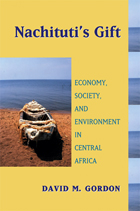
Nachituti’s Gift challenges conventional theories of economic development with a compelling comparative case study of inland fisheries in Zambia and Congo from pre- to postcolonial times. Neoclassical development models conjure a simple, abstract progression from wealth held in people to money or commodities; instead, Gordon argues, primary social networks and oral charters like “Nachituti’s Gift” remained decisive long after the rise of intensive trade and market activities. Interweaving oral traditions, songs, and interviews as well as extensive archival research, Gordon’s lively tale is at once a subtle analysis of economic and social transformations, an insightful exercise in environmental history, and a revealing study of comparative politics.
“A powerful portrayal of the complexity, fluidity, and subtlety of Lake Mweru fishers’ production strategies . . . . Natchituti’s Gift adds nuance and evidence to some of the most important and sophisticated conversations going on in African studies today.”—Kirk Arden Hoppe, International Journal of African Historical Studies
“A lively and intelligent book, which offers a solid contribution to ongoing debates about the interplay of the politics of environment, history and economy.”—Joost Fontein, Africa
“Well researched and referenced . . . . [Natchituti’s Gift] will be of interest to those in a wide variety of disciplines including anthropology, African Studies, history, geography, and environmental studies.”—Heidi G. Frontani, H-SAfrica
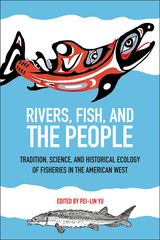
America’s western rivers are under assault from development, pollution, invasive species, and climate change. Returning these eco- systems to the time of European contact is often the stated goal for restoration efforts, yet neither the influence of indigenous societ- ies on rivers at the time of contact nor the deeper evolutionary relationships are yet understood by the scientific world. This volume presents a unique synthesis of scientific discoveries and traditional knowledge about the ecology of iconic river species in the American West.
Building from a foundation in fisheries biology and life history data about key species, the book reveals ancient human relationships with those species and describes time-tested Native resource management techniques, drawing from the archaeological record and original ethnographic sources. It evaluates current research trends, summarizes the conceptual foundations for the cultural and evolutionary significance of sustainable use of fish, and seeks pathways for future research. Geographic areas described include the Columbia Plateau, Idaho’s Snake River Plain, the Sacramento River Delta, and the mid-Fraser River of British Columbia. Previously unpublished information is included with the express permission and approval of tribal communities. This approach broadens and deepens the available body of data and establishes a basis for future collaboration between scientists and Native stakeholders toward mutual goals of river ecosystem health.
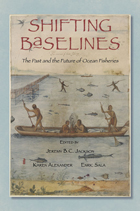
Edited by marine ecologists Jeremy Jackson and Enric Sala, and historian Karen Alexander, the book brings together knowledge from disparate disciplines to paint a more realistic picture of past fisheries. The authors use case studies on the cod fishery and the connection between sardine and anchovy populations, among others, to explain various methods for studying historic trends and the intricate relationships between species. Subsequent chapters offer recommendations about both specific research methods and effective management. This practical information is framed by inspiring essays by Carl Safina and Randy Olson on a personal experience of shifting baselines and the importance of human stories in describing this phenomenon to a broad public.
While each contributor brings a different expertise to bear, all agree on the importance of historical perspective for effective fisheries management. Readers, from students to professionals, will benefit enormously from this informed hindsight.
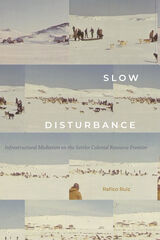
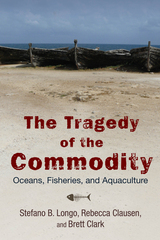
Although humans have long depended on oceans and aquatic ecosystems for sustenance and trade, only recently has human influence on these resources dramatically increased, transforming and undermining oceanic environments throughout the world. Marine ecosystems are in a crisis that is global in scope, rapid in pace, and colossal in scale. In The Tragedy of the Commodity, sociologists Stefano B. Longo, Rebecca Clausen, and Brett Clark explore the role human influence plays in this crisis, highlighting the social and economic forces that are at the heart of this looming ecological problem.
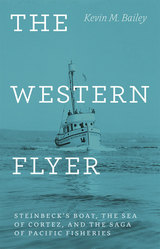
In this book, Kevin M. Bailey resurrects this forgotten witness to the changing tides of Pacific fisheries. He draws on the Steinbeck archives, interviews with family members of crew, and more than three decades of working in Pacific Northwest fisheries to trace the depletion of marine life through the voyages of a single ship. After Steinbeck and his friend Ed Ricketts—a pioneer in the study of the West Coast’s diverse sea life and the inspiration behind “Doc” in Cannery Row—chartered the boat for their now-famous 1940 expedition, the Western Flyer returned to its life as a sardine seiner in California. But when the sardine fishery in Monterey collapsed, the boat moved on: fishing for Pacific ocean perch off Washington, king crab in the Bering Sea off Alaska, and finally wild Pacific salmon—all industries that would also face collapse.
As the Western Flyer herself faces an uncertain future—a businessman has bought her, intending to bring the boat to Salinas, California, and turn it into a restaurant feature just blocks from Steinbeck’s grave—debates about the status of the California sardine, and of West Coast fisheries generally, have resurfaced. A compelling and timely tale of a boat and the people it carried, of fisheries exploited, and of fortunes won and lost, The Western Flyer is environmental history at its best: a journey through time and across the sea, charting the ebb and flow of the cobalt waters of the Pacific coast.
READERS
Browse our collection.
PUBLISHERS
See BiblioVault's publisher services.
STUDENT SERVICES
Files for college accessibility offices.
UChicago Accessibility Resources
home | accessibility | search | about | contact us
BiblioVault ® 2001 - 2024
The University of Chicago Press









